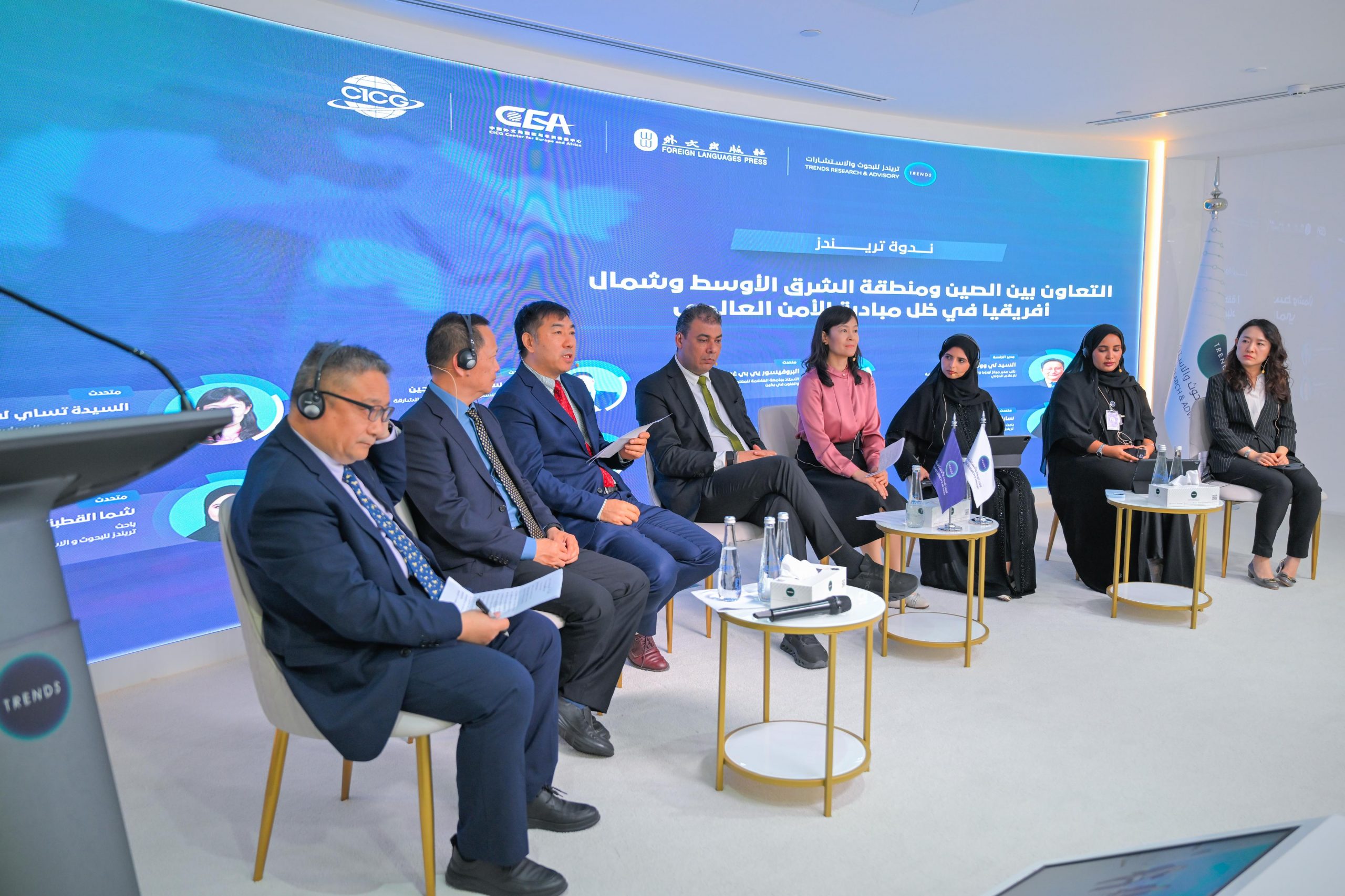TRENDS Research & Advisory hosted a symposium titled “Cooperation between China and the Middle East and North Africa Region under the Global Security Initiative,” in collaboration with the China Center for Europe and Africa of the China International Communications Group (CICG) and Foreign Languages Press. The event saw high-level attendance of diplomats, thinkers, and researchers from the region and China.
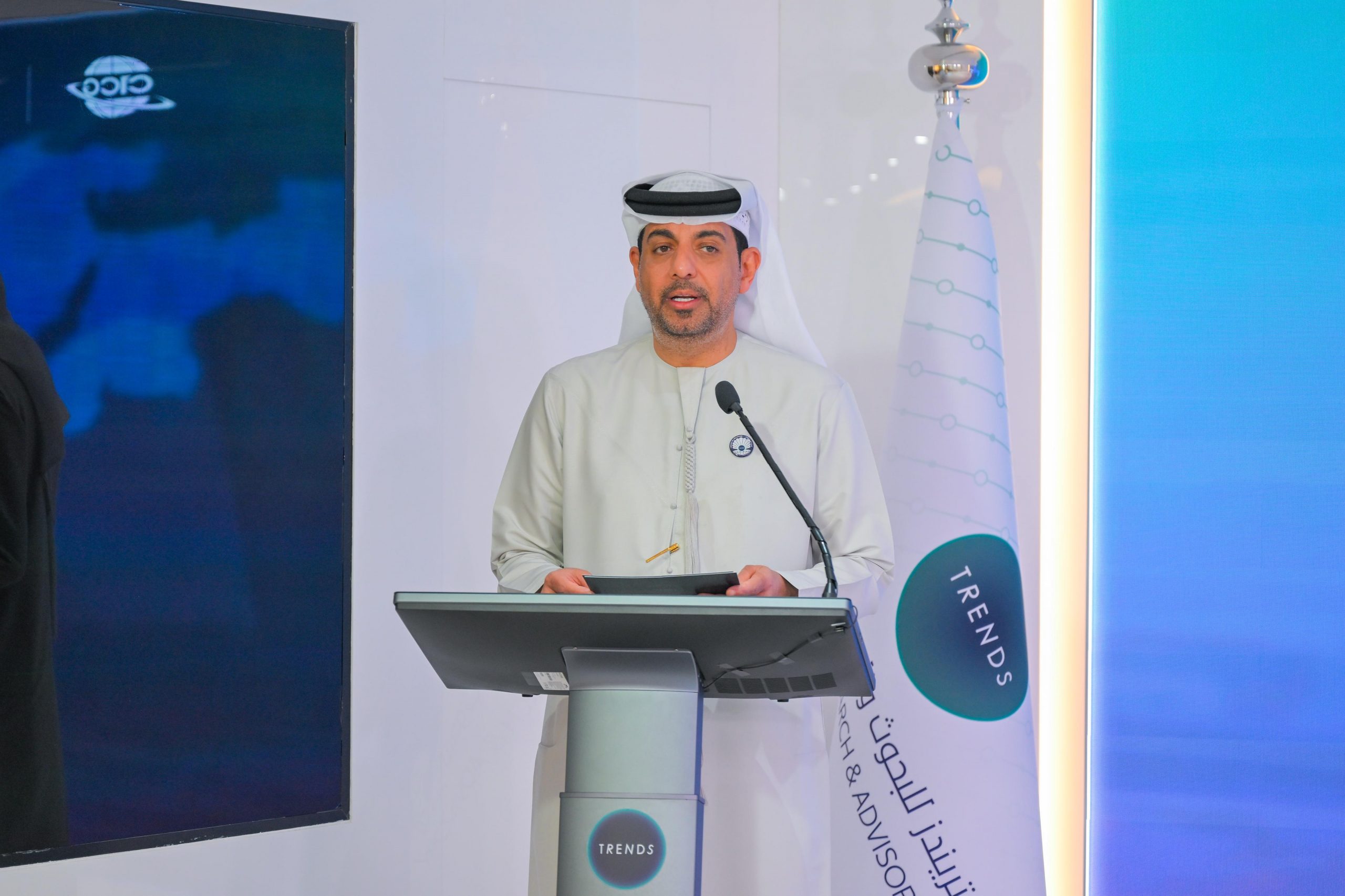
Enriching the Discussion
Dr. Mohamed Abdullah Al-Ali, CEO of TRENDS Research & Advisory, opened the symposium with a welcoming address in which he expressed his gratitude to the partners at CICG for their commitment to strengthening joint cooperation with TRENDS. He noted that this partnership lies at the core of TRENDS’ global research vision—serving as a bridge for constructive, knowledge-based dialogue among diverse cultures and academic institutions.
Dr. Al-Ali reviewed China’s Global Security Initiative (GSI), introduced in April 2022, underlining its core principles aimed at ensuring security and promoting global peace, particularly achieving common security, adhering to the UN Charter, respecting state sovereignty, and settling disputes peacefully. He noted that these principles align with the region’s strategic perceptions toward a pluralistic international order built on sustainable security, respect for sovereignty, and peaceful conflict resolution. He emphasised that the MENA region needs the spirit of this initiative to resolve crises, combat terrorism, and address climate and cyber challenges. He also noted that strong economic ties and the accession of many countries in the region to the Belt and Road Initiative pave the way for greater cooperation under the GSI. He concluded by expressing hope that this symposium would help enrich discussion on expanding future cooperation between China and the region.
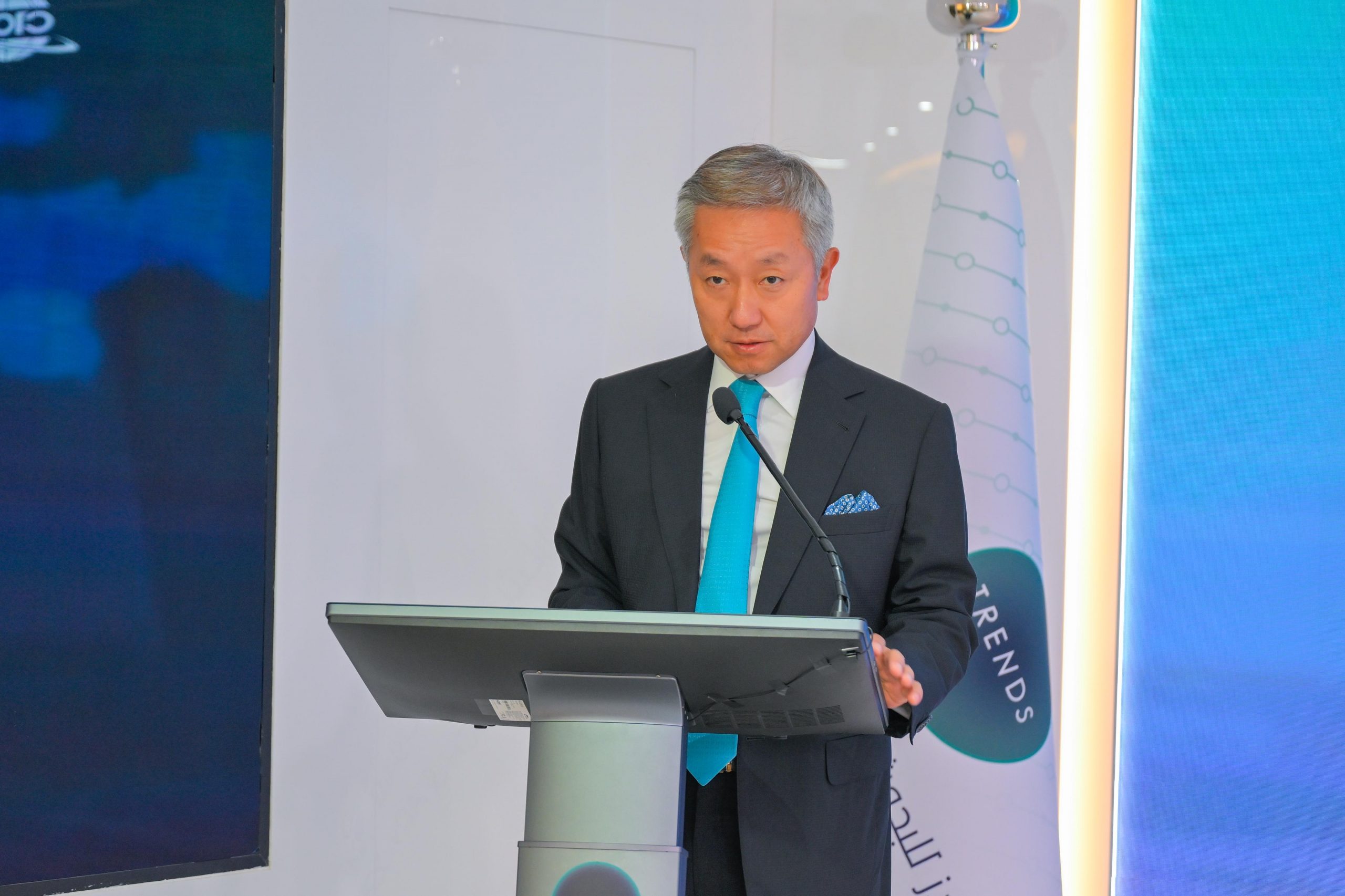
Spirit of Solidarity
Following the welcoming remarks, His Excellency Zhang Yiming, Ambassador of the People’s Republic of China to the United Arab Emirates, delivered a keynote speech. He began by expressing his pleasure at gathering at TRENDS to discuss this vital topic. He noted that the world is witnessing unprecedented changes and mounting security challenges, making it vital to focus on implementing the GSI in the Middle East and strengthening cooperation between China and the region.
His Excellency the Ambassador reviewed the initiative proposed by President Xi Jinping at the Boao Forum for Asia in 2022, which calls for adapting to the changing international landscape with a spirit of solidarity and facing challenges with a win-win mentality. He affirmed that the initiative has taken root in the Middle East and contributed to addressing dilemmas it encountered. His Excellency the Ambassador noted that China and the countries of the Middle East, under the umbrella of the GSI, have entered the best historical period in their relations, with cooperation in various fields reaching remarkable landmarks. He explained that China has established comprehensive strategic partnerships or strategic partnerships with 14 Arab countries and the League of Arab States, and that the two sides have implemented more than 200 major cooperation projects within the framework of the Belt and Road Initiative. He also referred to the 10th Ministerial Meeting of the China-Arab States Cooperation Forum in Beijing and the announcement of the second China-Arab Summit to be held in China next year, which sets the course for relations in the new era.
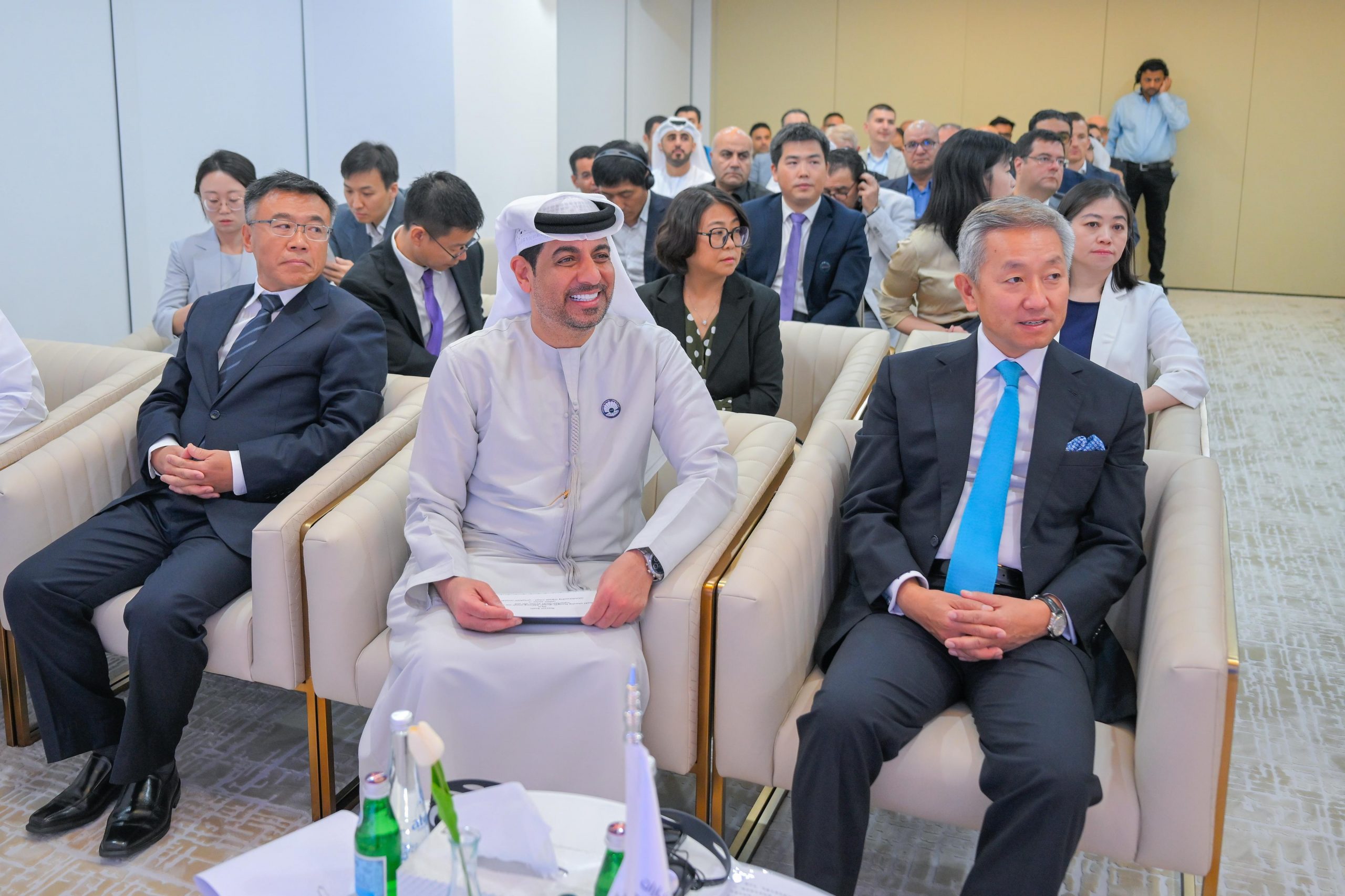
A Focal Point
This was followed by a speech by Mr. Liu Dawei, Vice President of the China International Communications Group (CICG), delivered on his behalf by Mr. Li Wenxue, Deputy Director of the Center for Europe and Africa of CICG. The speech reviewed the theoretical and practical frameworks that underpin the Sino-Arab convergence on security and development issues, referring to the historical background linking China to the Arab region through the ancient Silk Road and the modern Belt and Road Initiative. It highlighted that the UAE constitutes a fundamental focal point in this path as China’s largest trading partner in the Arab world and one of the most secure countries globally.
The speech presented the “Global Security Initiative” as a new framework for international relations based on respect for sovereignty, rejection of hegemony, and the peaceful settlement of disputes through dialogue.
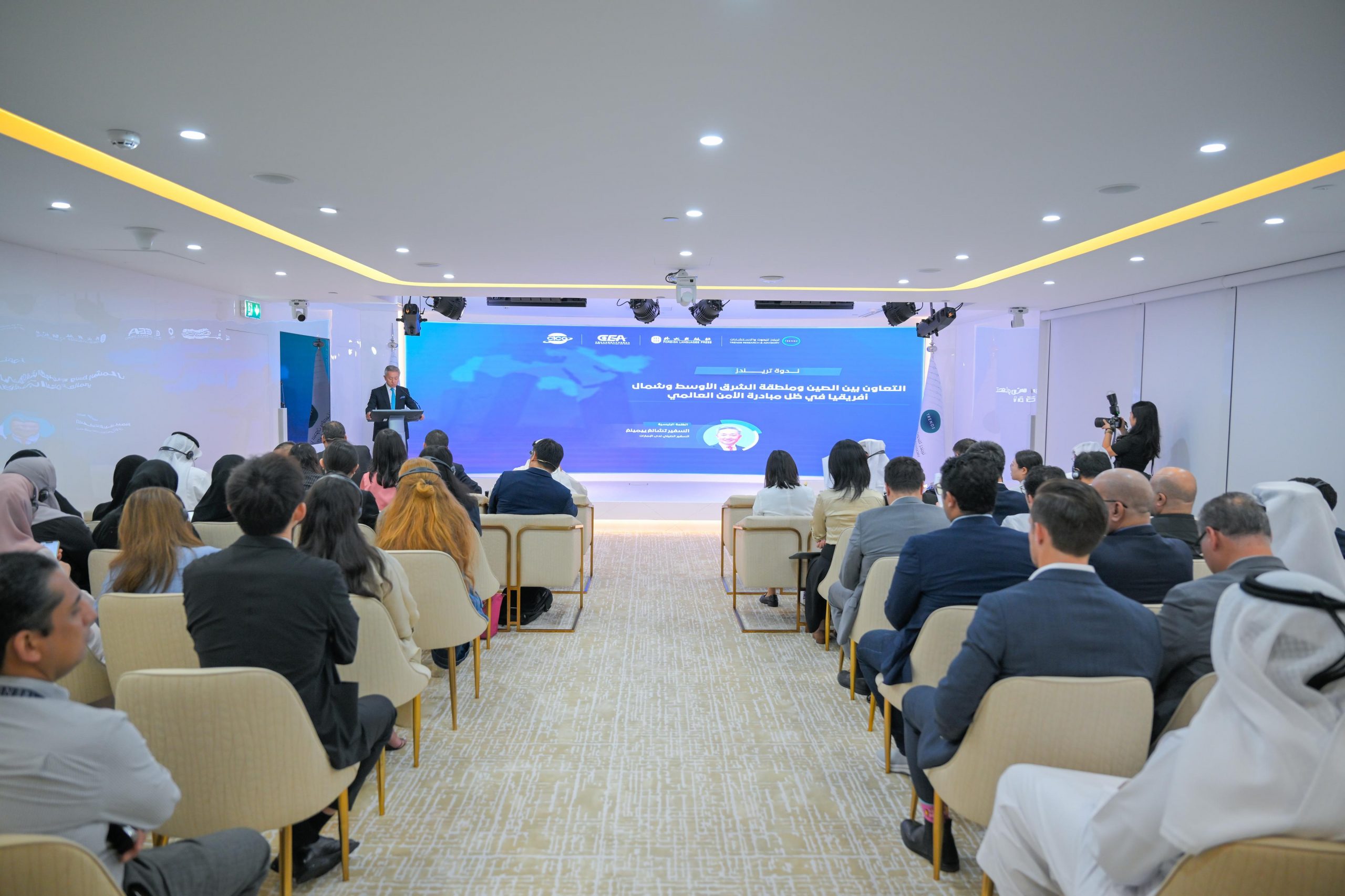
Response
The session was moderated by Mr. Li Wenxue, Deputy Director of the Center for Europe and Africa of CICG, who gave a brief presentation on the GSI, its objectives, and its fundamental principles. He clarified that the initiative is part of a strategic trilogy for China, which also includes the Belt and Road Initiative and the Global Development Initiative, all within a comprehensive vision for a new global order based on multilateralism, balance, and openness. Mr. Li Wenxue also outlined the shared pillars between the UAE’s orientations and the GSI, noting that this convergence enhances opportunities for bilateral and regional cooperation to achieve security and stability.
The symposium program included speeches by a number of prominent speakers who provided in-depth perspectives on various aspects of cooperation between China and the region under the GSI.
Cultural and Civilizational Dimension
Professor Chai Shaojin, from the School of Languages and Social Cultures at Shanghai University, presented a paper on the cultural and civilizational dimension of the GSI. He emphasized the importance of dialogue among civilizations and the promotion of mutual understanding as a basis for achieving sustainable security. The Initiative, he noted, opens new avenues for cultural cooperation and the exchange of expertise between China and Middle Eastern countries, built on a long-standing history of cultural and knowledge-based interaction between the two sides.
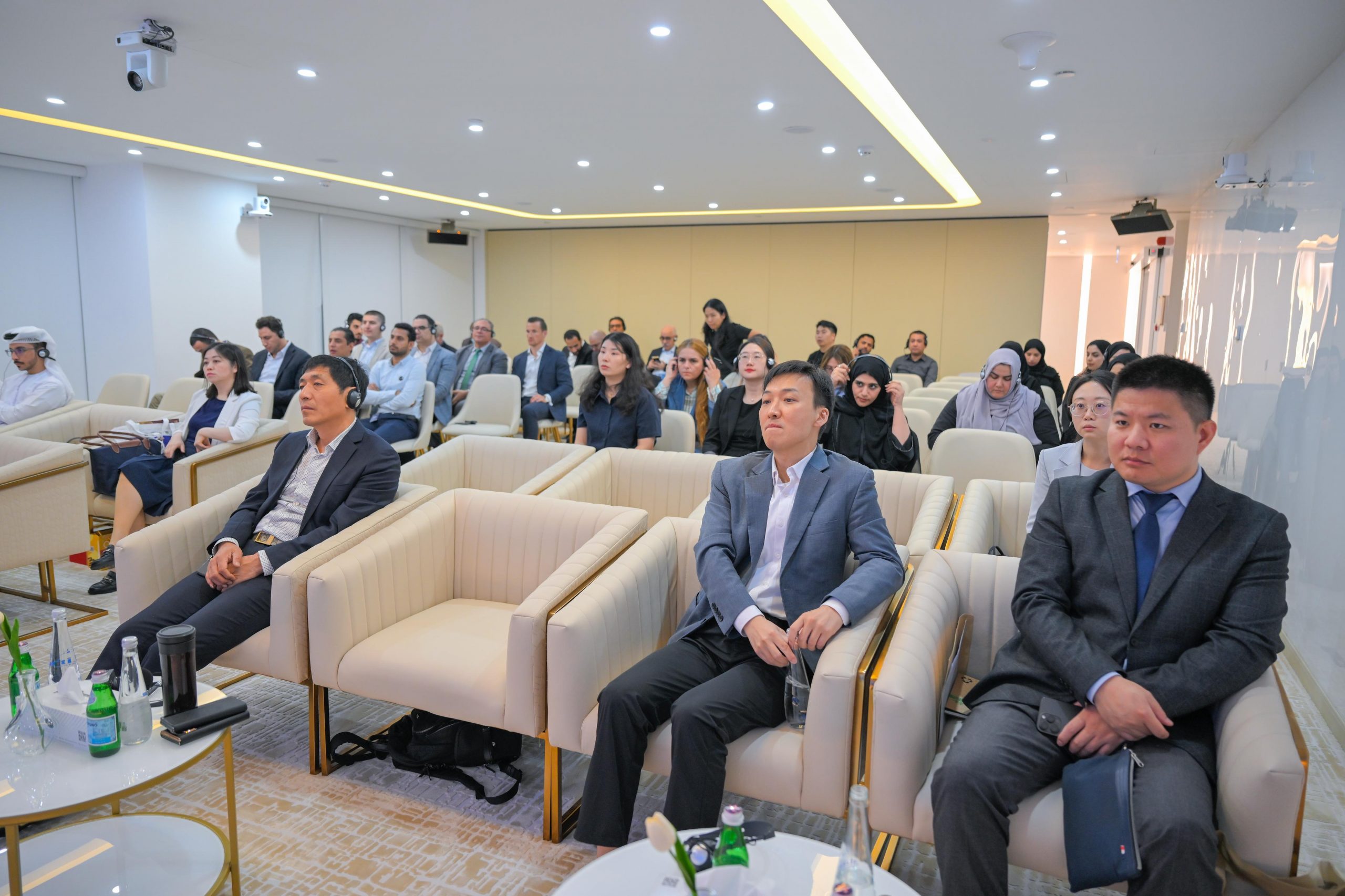
The Role of Translation
Ms. Jiang Lili, Director of the French Language Department at Foreign Languages Press, delivered a speech on the role of translation within the framework of the GSI. She affirmed that translation serves as a bridge between civilizations and carries the responsibility of promoting international understanding and serving global governance. She outlined the key priorities of the publishing house’s work in this field, which include commitment to the principles of honesty and accuracy in translation, promoting dialogue between civilizations, applying diverse communication strategies, and focusing on avoiding misunderstandings arising from cultural differences. She called for continued commitment to professionalism and innovation among translators so they can contribute to building a community with a shared future for humanity.
A Model Worth Emulating
Researcher Sarah Al-Nuaimi from TRENDS Research & Advisory specifically addressed Sino-Emirati relations, noting that they represent a model to emulate in comprehensive strategic cooperation. She explained that the partnership between the two countries is witnessing rapid growth in various sectors, from energy and trade to investment in advanced technology and space. She emphasized that the UAE is a key partner in the Belt and Road Initiative and that the convergence of visions between the two countries on the importance of regional stability and sustainable development enhances opportunities for joint cooperation within the framework of the GSI, serving the common interests of both countries and contributing to the promotion of international peace and security.
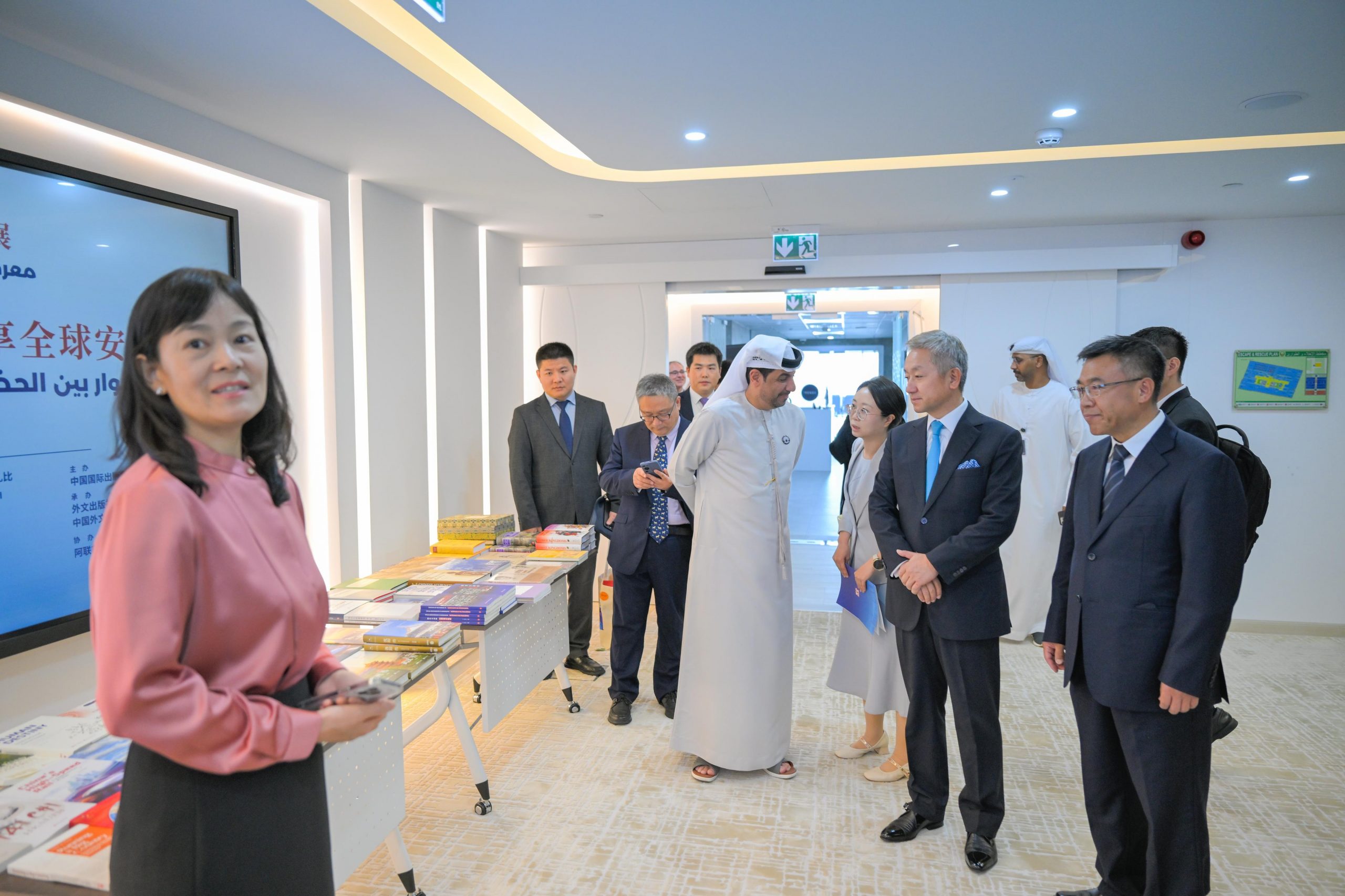
Dialogue
Professor Yi Baigui, from Beijing Foreign Studies University and Vice Chairman of the Beijing Federation of Literary and Art Circles, delivered a summary of his speech in which he affirmed that understanding global security requires moving beyond narrow interpretations toward a broader vision that places civilizational dialogue at the heart of any peace project. He argued that the GSI represents a serious attempt to transcend the Cold War logic by embracing inclusiveness, integration, cooperation, and sustainability, thus opening the door for expanding cultural dialogue. He highlighted the historical depth of Sino-Arab relations and pointed to the unique role that the arts play in bringing peoples closer together. He concluded with three recommendations for enhancing civilizational cooperation between China and the Arab world, including encouraging comparative research, supporting a new generation of educated youth, and focusing on exchanges in the spheres of everyday life.
Supporting Development
Ms. Cai Lili, Director of the Political Editing Department at Foreign Languages Press, also participated with a speech addressing the civilizational and cultural framework of the GSI. She emphasized that it represents a Chinese strategic pathway aimed at fostering peace and development and building a community with a shared future for humanity. She focused on the importance of translation and publishing in promoting understanding between civilizations and presented the publishing house’s role in introducing Chinese thought to the world, noting the translation of the book “Xi Jinping: On Governance” into 42 languages. She also highlighted President Xi Jinping’s use of Arab proverbs in his speeches as an indicator of cultural affinity. She called for deepening cooperation in the fields of publishing, translation, and cultural exchange.
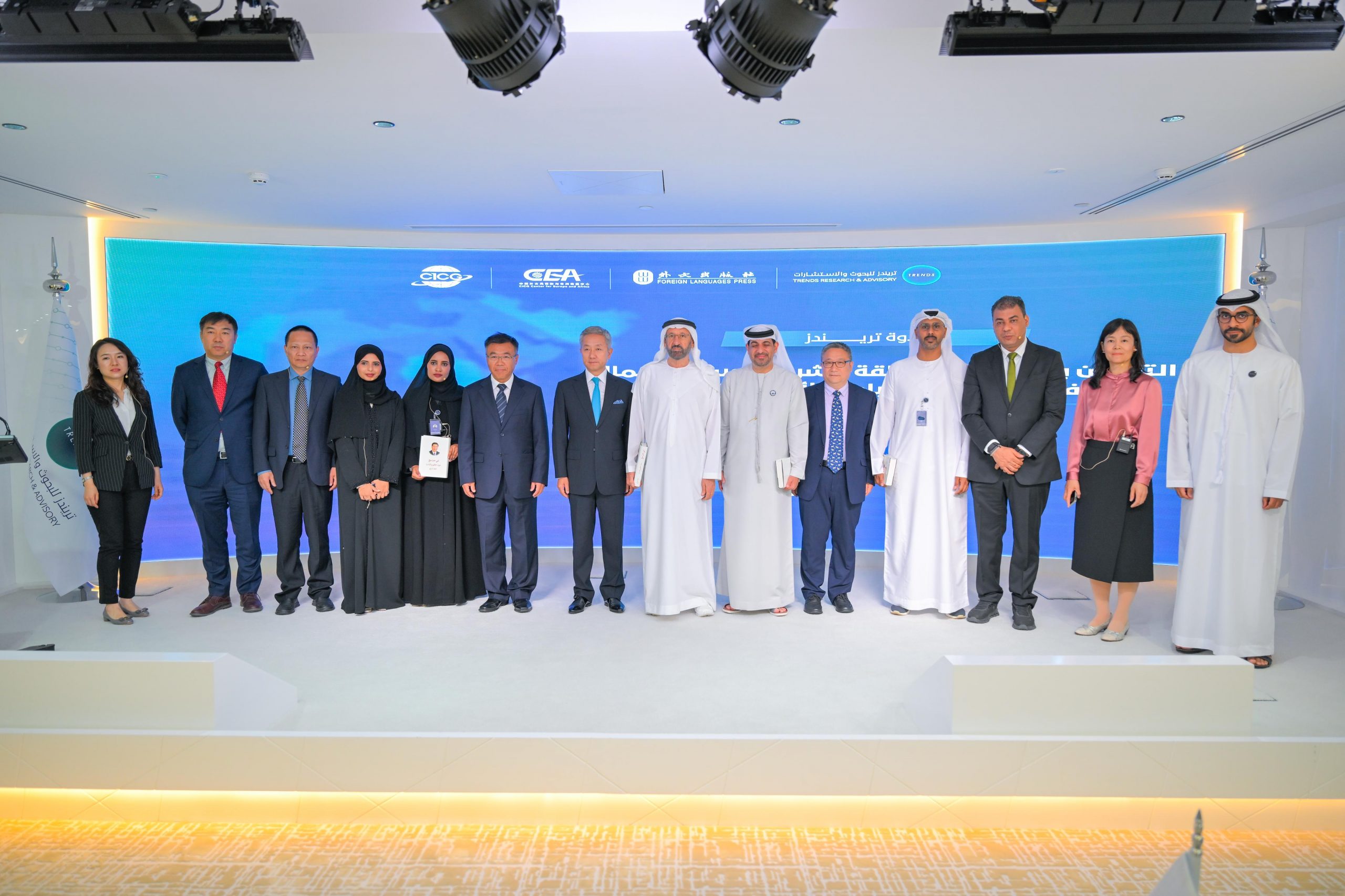
Mutual Understanding
Ms. Jing Lili, Director of the Arabic Language Department at Foreign Languages Press, presented a summary of her speech, which also addressed the role of translation within the framework of the GSI. She emphasized the importance of honesty and accuracy in conveying political and cultural concepts and taking into account the traditions and linguistic culture of the target audience. She stressed the role of translation in promoting dialogue between civilizations and disseminating mutual understanding through building a cultural translation model that respects the specificity of concepts and seeks common ground. She also pointed to diverse communication strategies and review mechanisms to ensure the quality of translation and avoid misunderstandings resulting from cultural differences.
Depth of Experience
In turn, Dr. Ahmed Al-Saeed, CEO of Bayt Al Hikma for Culture Group, affirmed that the Arab world views the concept of security from the depth of experience, being a region that has suffered from turmoil and conflicts. He welcomed the GSI, which is not based on exclusion but on partnership and respect. He argued that the initiative represents a shift in the philosophy of security from state security to human security and from the security of control to the security of understanding. He pointed to the pivotal role of President Xi Jinping in reformulating the global discourse on security and development through a vision based on fairness, balance, and the idea of a “community of shared future for humanity.”
Dr. Al-Saeed explained the role of Bayt Al Hikma for Culture Group in being a living bridge between China and the Arab world through cooperation with CICG and publishing key Chinese works in Arabic. He also referred to the group’s participation in the virtual office initiative of TRENDS Center in Beijing to facilitate joint translation and publishing.
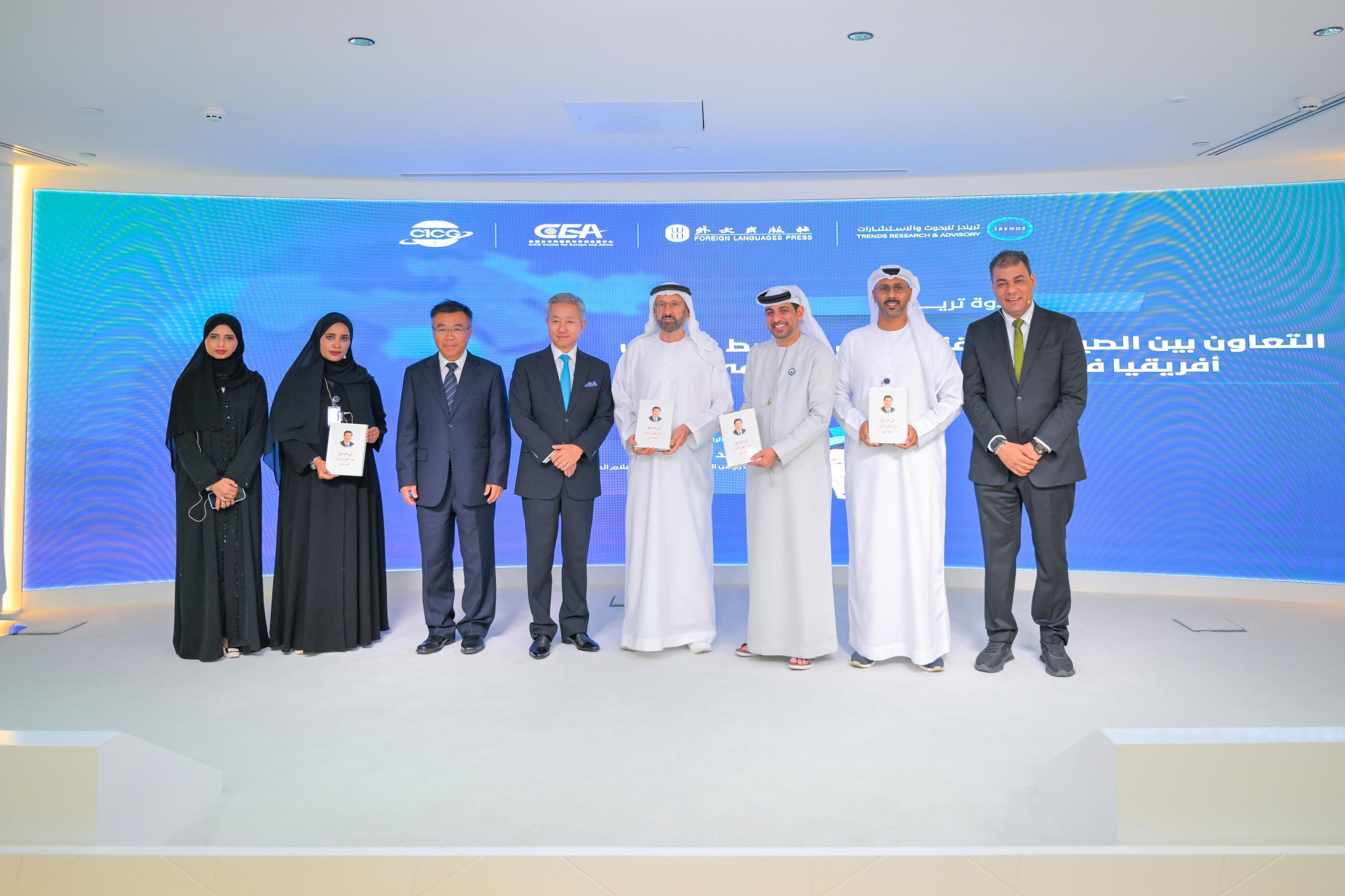
Opportunity
In her intervention, researcher Shama Al-Qatba from TRENDS Research & Advisory Center shed light on Sino-Arab relations from a regional perspective. She emphasized that these relations are witnessing a qualitative development that goes beyond the economic dimension to include cooperation in the fields of security, technology, and culture. She noted that the GSI represents an opportunity to enhance this cooperation and consolidate the principles of mutual respect and non-interference in the internal affairs of states, which aligns with the aspirations of the region’s countries towards building a more stable and prosperous regional order. She also stressed the importance of the role that the UAE can play, given its strategic location and balanced relations with various international powers, in facilitating dialogue and promoting understanding between China and Arab countries.



